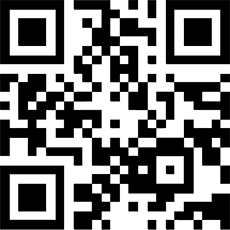Blog
Dental hygiene tips for healthy teeth & gums

Sleep Apnea Treatment: How It Can Help You Live Longer
The life expectancy of Americans currently hovers around 76 years. However, many people survive their 80s or even their 90s for one reason or the other. You need to take care of your health to achieve that desired life longevity. You should take all the measures to ensure that the quality of sleep is maintained, and for that, you may require sleep apnea treatment. But how might this sleep apnea treatment help you live longer? This blog post explains.
What is Sleep Apnea?
Sleep apnea is a type of sleep disorder in which breathing is periodically disrupted during the night. Sleep apnea is of three main types. Central sleep apnea is very uncommon as this is when the signals going to the muscles for breathing do not originate from the brain properly.
The second and most common type is known as obstructive sleep apnea (OSA). During sleep, the body becomes more at rest, and the muscles of the respiratory tract unwind. When this happens, the heart rate and the oxygen levels in the body decrease.
To counter this, the body freaks out and jolts one awake to kick-start the breathing process again. This can occur repeatedly during the night and puts strain on the heart. The heart rate increases and the blood pressure rises. It is also very common to find instances where someone can be suffering from both kinds of apnea, though at different times. This is known as ‘mixed type’.
If you are suffering from this condition, it is your partner who will most likely observe these signs and conclude the results. One of the most common symptoms is snoring loudly. A partner may even notice half-way breathing pauses and a choking sound afterward.
If you have OSA, you may have to get up frequently to pass water at night or wake up with a headache and/or dry mouth. You are likely to develop fatigue during the day and can also be moody. OSA is prevalent in males, people over forty years of age, the obese, and smokers. It can also be genetic. Children may have OSA, but a physical problem like large tonsils or adenoids mainly causes it.
Signs of Sleep Apnea
The most common symptom of sleep apnea is snoring. People’s sleep is interrupted by snoring, and the condition reveals severe diseases in the patient concerned. Patients who snore have some form of sleep apnea, depriving their body of adequate oxygen and gasping for air with eyes wide open when asleep, only to wake up several times struggling to breathe.
Sleep apnea symptoms: Individuals with the condition will also have a dry mouth, snoring, difficulty concentrating, depression, weight gain, headaches or migraines, and others. In such cases, patients assist themselves by visiting Springtown Dental’s dentist for sleep apnea treatment. Besides, the dentist and their team can direct a patient to a sleep study to get closer to better sleep.
Disorder of Sleep Apnea and Its Impact on Your Body
You may develop adverse health effects if you don’t get the recommended sleep for a night or two or even a week. OSA and obstructive sleep apnea patients never get the rejuvenating sleep they require, and most are not even aware of it. These awakenings are neither brief enough for us to recall during the day nor long enough to get back to sleep. It is estimated that 80% of patients with obstructive sleep apnea are either undiagnosed, underdiagnosed, or untreated. If diagnosed with untreated sleep apnea, you are in for the following dangers;
- Hypertension
- Stroke
- Arrhythmias
- Cardiomegaly (enlargement of the muscle of the heart)
- Heart failure
- Diabetes
- Obesity
- Heart attacks
- Anxiety and depression
- Dementia & Alzheimer’s Disease
How Treatment Can Help
The information above may sound scary, but there is a reason to be optimistic. Treatment may help you to live longer in a few different ways:
- Sleep apnea therapy lets your body get the right amount of oxygen while sleeping, thus reducing the stress on your cells and helping your body function optimally. Suitable blood pressure and low risk of cardiovascular disease, among other benefits, might be experienced.
- Several studies have also indicated that appropriate treatment for sleep apnea reduces the effects of the disease, including biological aging.
- Healthy sleep also impacts hormones that control your hunger/satiety signals, and hence, you are encouraged to make healthy dietary choices.
- Good quality sleep helps a person respond quickly, which will help a person on the road.
- It is vital to get enough sleep emotionally. This is because diseases such as anxiety and depression raise many other physiological health risks.
One should seek a sleep disorder diagnosis. Often, it involves a polysomnogram, which examines your sleep, and an evaluation of your mouth and throat to see if they might be physically causing the blockage, such as with large tonsils.
If you are diagnosed with OSA, your doctor may recommend changing some habits, including smoking or being overweight. Nonetheless, for moderate to severe OSA patients (moderate: 16 to 30 episodes of stops breathing at night, severe: more than 30 episodes at night), CPAP therapy is the most common treatment.
How Using CPAP Therapy Increases Expected Life Span
The clinical equipment mentioned above forces air through the nose and the mouth. A special device is called a CPAP or continuous positive airway pressure machine. This is a small machine that pumps the air into the mask by a tube while the other end is on the sleeper.
The great news is that apart from enhancing the ability of the person to sleep and breathe, the study conducted on 2,000 Danes over 13 years showed that using the CPAP machine lowered the risk of heart failure.
Other longitudinal studies also prove that positive effects of CPAP treatment arise when taking therapy after six or seven years. Scientists now claim to have proof that patients suffering from obstructive sleep apnea can benefit from proportions of the therapy as it cuts the risk of cardiovascular incidents and raises life expectancy.
Final Thoughts
Sleep apnea, therefore, is a severe sleep disorder, and thus, appropriate diagnosis and treatment should be arranged. Sleep apnea is a disease that influences your body physically, your mind, and your emotions, and it can reduce your life by several years.
If you are struggling with a sleep disorder, don’t let it hinder your health; speak to your doctor at Springtown Dental or a health specialist about the symptoms now. CPAP therapy can help reduce your symptoms and may be able to help you regain lost life expectancy.


